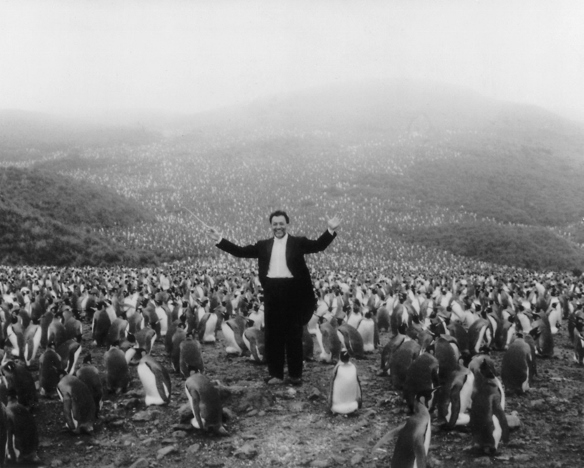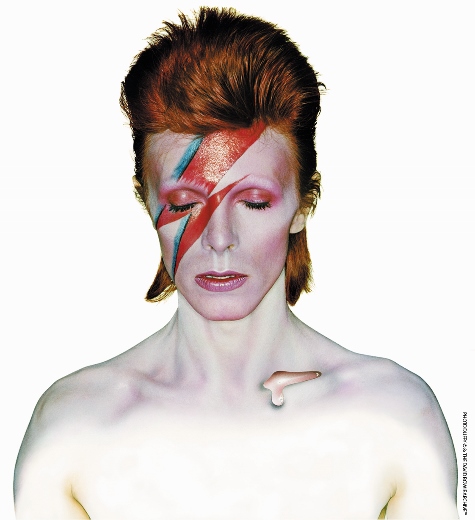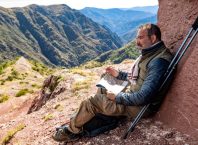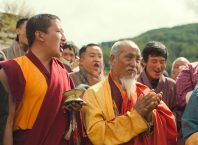EPOS International Art Film Festival celebrates the arts – music, literature, dance, theatre, the visual arts and film – all explored through the medium of cinema. Now in its 8th edition, the festival will take place from April 5 – 8, 2017, at the Tel Aviv Museum of Art. In tribute to the Israel Broadcasting Authority (IBA), which will be closing after almost fifty years, the festival will feature select films and programs produced by the IBA. Opening ceremonies will include the screening of the first in a four-part series on the life and work of Hanoch Levin, poet, satirist, and playwright, and additional films to be shown in this context include Lena Chaplin’s Zohar the King (1994) on the rise and fall of singer Zohar Argov, Ram Loevy’s 1978 film on activist-director Nola Chilton’s theatre group in Kiryat Shmona, Levy Zini’s film How do you say Jazz in Hebrew?, and two episodes of Yoav Ginai’s series Lagaat Baruach (To Touch the Wind) on the musician Ahuva Ozeri and actor Sandra Sade.

“I sang before I spoke,” recalls Zubin Mehta in Bettina Erhardt’s Good Thoughts, Good Words, Good Deeds, a documentary that not only offers an overview of the illustrious conductor’s career, but conveys the spirit of the musician and the man. The film opens with a scene of Mehta conducting, his serenity and unity with the music are manifest and moving. Following the trajectory of Mehta’s life in a not strictly chronological order, from his childhood in Bombay (today Mumbai), the son of violinist Mehli Mehta (founding conductor of the Bombay Symphony Orchestra) to the present day. Mehta’s vibrancy as he enters his 90th decade is impressive, his intelligence, warmth, honesty, and intense relationship to music are inspiring. Interviews with Mehta, his friends, musicians, and colleagues who have worked with him over the years are interspersed with plentiful clips from rehearsals and concerts, providing greater insight to his musicianship, as well as an excellent soundtrack.
Israel has enjoyed a special relationship with Mehta since 1961, when he was first invited to conduct the Israel Philharmonic, where he was made Music Director for Life in 1981. Mehta speaks of making music “with the musicians” and learning from them, as one follows the film, listening to musicians recount their experiences with him, the depth of this philosophy becomes more evident, and not only in relation to music. In talking about his disappointment at not being able to perform with the Israel Philharmonic in Arab countries, Mehta says, “We have been at peace with Egypt since 1978.” The pronoun is worth noticing. In life, as in music, Mehta does not appear to set himself apart, but rather to feel an affinity and empathy for those he is with, embracing the world. He points to the view from his hotel, saying “This is my Tel Aviv,” and later in the film, looking out at the red tile roofs of Florence, says, “This is my Florence.” At the Israeli Philharmonic’s landmark first performance in Berlin, it was Mehta who decided that they should play Israel’s national anthem, Hatikva, as their encore. Yet he is uncompromising in his dedication to his principals, both in life and music: whether his emphatically stated opposition to the settlements, his insistence on the importance of performing the music of Wagner, or his courage in conducting a concert in the ruins of the Moslem Library in Sarajevo. The film’s director, Bettina Erhardt, will be a guest of the EPOS Festival.
Georg Wūbbolt’s Leonard Bernstein: Larger Than Life, presents a very different, yet utterly intriguing figure. Interviews with Bernstein’s three children, Jamie, Alexander, and Nina, as well as his many colleagues and students, create a portrait of a remarkably gifted, passionate, brilliant man, who was as driven a teacher as he was a composer and conductor. Marin Alsop, music director of the Baltimore Symphony Orchestra and São Paulo State Symphony Orchestra, remembers attending one of Bernstein’s Young People’s Concerts for the first time at age nine, as a life-altering experience, determining her future as a conductor. Here too, the scenes of Bernstein conducting, rehearsing, and teaching, are riveting. Known for reviving an interest in Mahler, watching him rehearse with a not entirely cooperative orchestra in Vienna. The force of his character, and the passion he brought to every endeavor, is apparent even in his last years, as weakened by illness, he tells the orchestra he’s rehearsing with: “It’s old fucking age, I hate it.”
Very much alive and kicking is the underground music scene in Lebanon, Egypt, Jordan, and the West Bank, as shown in Farid Eslam’s film Yallah Underground! Eslam follows the music scene in these different locations from 2010 – 2013, through interviews interspersed with music clips, scenes from concerts, and events of the times, such as the Tahrir Square protests of 2011. There is no attempt to impose a narrative arc or agenda on the film, but rather Eslam lets each musician speak for her/himself, each emerging as an individual, with his or her own dreams and struggles. While some of these difficulties will be very familiar to anyone who pursues an artistic path in life – parents who can’t accept “musician” as a real job, inevitably, these musicians are encountering and contending with unique challenges and constraints. Mohamed Safi, a DJ, musician and radio personality in Cairo, speaks of growing up between different cultures – “listening to the call to prayer while watching the A Team and Knight Rider.” Musician Zeid Hamdan was arrested in Lebanon because his song lyrics, “General go home!” were deemed an offense to President Michel Suleiman. The women face additional barriers, in terms of cultural expectations, their matter-of-fact courage is inspiring. Some are concerned with the negative image of Arabs in the Western world and would like to try to effect change, others say, “I don’t care how the world sees us.” It’s an opportunity to become better acquainted with the music scene in our neighborhood, so close, and yet so far away.

The late David Bowie was the ultimate performer, the documentary David Bowie is takes the viewer on a virtual tour of the retrospective exhibition at the Victoria and Albert Museum in 2013, augmented by video clips of Bowie in concert and in interviews, interviews with those who knew Bowie, and the responses of fans viewing the exhibit. The exhibition includes an extensive collection of handwritten lyrics, original costumes, set designs, Bowie’s instruments and album artwork. What stands out more than anything else is Bowie’s ability to invent and reinvent himself, his strong sense of visual identity, constructed with meticulous attention to detail, as well as astounding talent. Author Hanif Kureishi, who, like Bowie, attended Bromley Technical College, comments that “We were brought up really to be nobodies” but Bowie inspired him and others to believe that “middle class boys like us could have an artistic life.”
In addition to these films that I ‘ve had the opportunity to view, there are several more music-related documentaries at the festival, including Christopher Swann’s The Making of West Side Story, and Maria Callas: La Divina, directed by Tony Palmer. The full program is available on the EPOS Festival website. Tickets may be ordered online, the purchase of a movie ticket includes entrance to the Tel Aviv Museum of Art.





